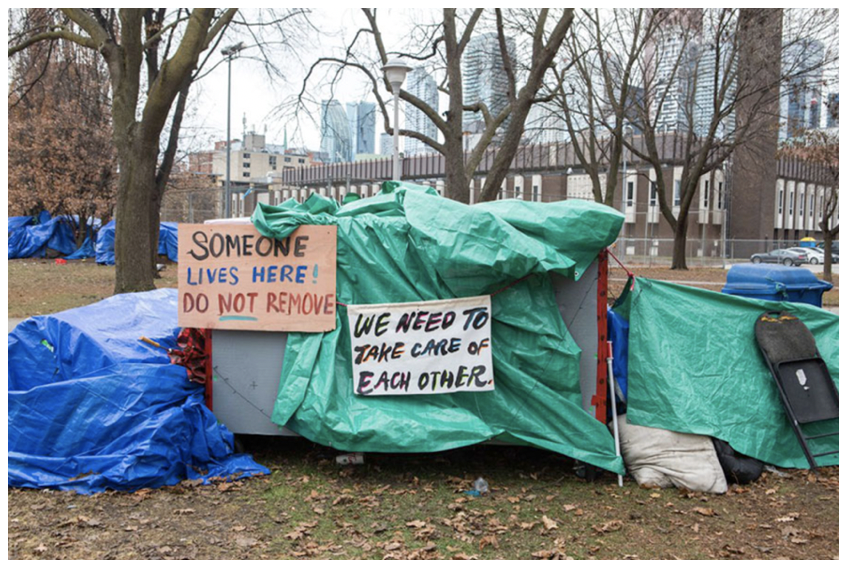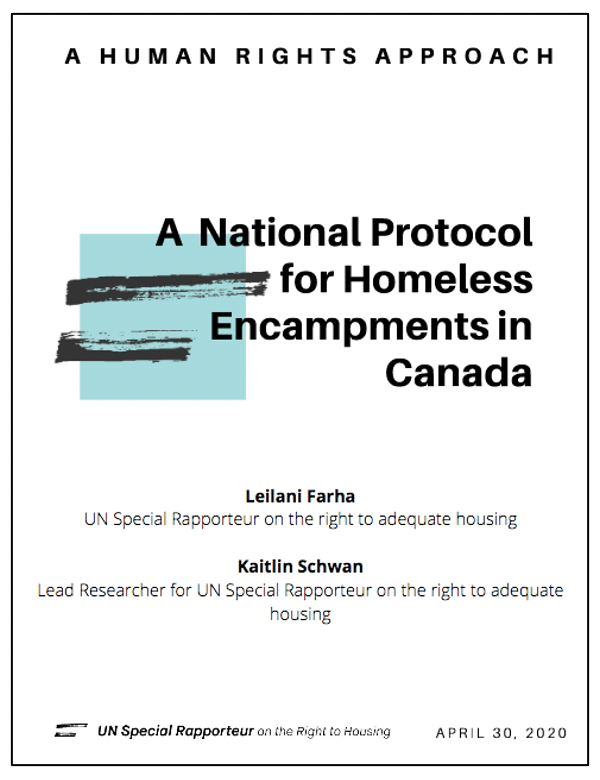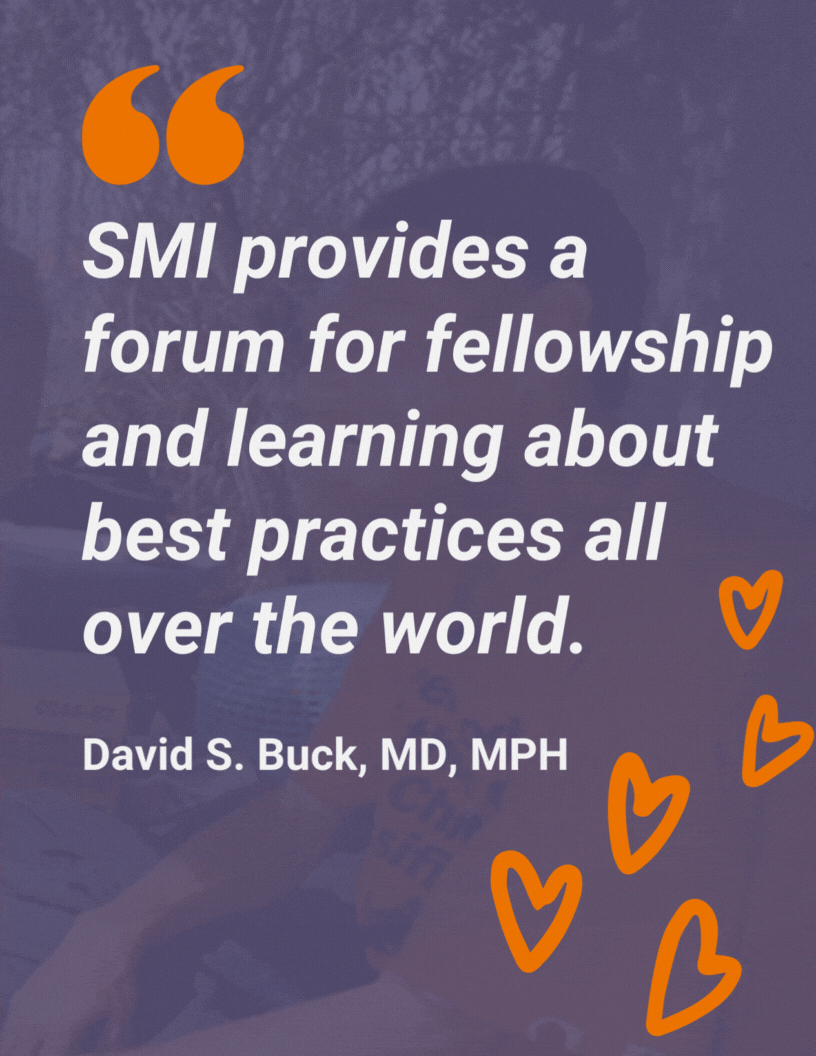Guest Post: Writing a Human Rights Prescription for Governments: How the street medicine movement can leverage human rights law for transformative change
At the heart of both street medicine and human rights stands one animating principle: dignity. Anyone who practices street medicine understands that homelessness constitutes an affront to human dignity. To bear witness to systemic violations of human dignity, and stand in solidarity with those who experience it, is the daily work of street medicine practitioners. Practitioners in this field can vividly describe the dehumanization experienced by people who are unhoused – ritualized in our legal systems, our social services, our streets, our schools, and yes – our healthcare systems.
What is less familiar, perhaps, is that this dehumanization often constitutes a violation of human rights. We don’t think about homeless shelters as human rights spaces. We rarely discuss homelessness as a human rights violation. And we often don’t understand homeless encampments as powerful claims to the right to housing.
In my keynote at ISMS 18 this year, I proposed two ideas:
- Street medicine’s commitment to protect and advance the health and dignity of people who are homeless is human rights work. Street medicine practitioners are human rights defenders.
- Street medicine can leverage international human rights law in ways that can result in profound, transformative policy change – locally and globally.
Human Rights Law & the Street Medicine Movement – Horizons for Action
 Under international human rights law, everyone has the right to adequate housing as an element of the right to an adequate standard of living. This requires governments to ensure that housing is accessible, affordable, habitable, in a suitable location, culturally adequate, offers security of tenure, and is proximate to essential services such as health care and education.
Under international human rights law, everyone has the right to adequate housing as an element of the right to an adequate standard of living. This requires governments to ensure that housing is accessible, affordable, habitable, in a suitable location, culturally adequate, offers security of tenure, and is proximate to essential services such as health care and education.
Importantly, homelessness is considered a prima facie violation of the right to housing, the right to health, and numerous other human rights under international law. This imposes legal obligations on all governments, including the following:
- Governments have an immediate obligation to adopt and implement strategies to eliminate homelessness which include clear goals and timelines, in consultation with people who are unhoused
- Evictions should never render an individual homeless and there should be a prohibition on evictions that will have that result
- Every government decision or policy should be consistent with eliminating homelessness
- Governments have to engage the private sector to ensure that their actions and policies are in accordance with the right to adequate housing and the prevention of homelessness.
These legal standards are important because they supersede national law and can be leveraged by the street medicine movement to drive policy and legislative change. After all, what mobilizes human rights advocacy is that we actually dare to insist on a society that holds everyone as equal in dignity and rights – a foundational tenant of street medicine. We are always positing that as a legitimate aspiration, as opposed to a utopian one, because we understand that human rights impose legal obligations on governments to act. Human rights defenders around the world demand accountability for these legal obligations through the courts and human rights monitoring mechanisms. Like other social movements, the street medicine community can leverage these legal standards to drive forward policy and legislative change for the communities they work with.
Human Rights Law in Practice – A rights-based approach to homeless encampments
 To illustrate the power of a human rights approach, my keynote highlighted A National Protocol for Homeless Encampments in Canada – A Human Rights Approach (2020). Drafted by myself and Leilani Farha, the former UN Special Rapporteur on the Right to Adequate Housing, this Protocol articulates 8 key human rights obligations governments have towards people living in encampments.
To illustrate the power of a human rights approach, my keynote highlighted A National Protocol for Homeless Encampments in Canada – A Human Rights Approach (2020). Drafted by myself and Leilani Farha, the former UN Special Rapporteur on the Right to Adequate Housing, this Protocol articulates 8 key human rights obligations governments have towards people living in encampments.
This Protocol is the kind of tool that street medicine practitioners can develop and mobilize across the world. It makes human rights law tangible in the domestic context and provides encampment residents with accessible information about their right to housing. In Canada, we have seen the Protocol used in court cases, legal challenges, advocacy campaigns, activist actions, policy development, media, healthcare policies, research, city hall debates, electoral campaigns and debates, and countless other contexts. We have seen it meaningfully shift the conversation on encampments, help prevent encampment evictions, support the provision of basic services to encampments, and be used as a tool for galvanizing political power for people who are unhoused. This is the power of human rights.
Building a Rights-Based International Street Medicine Movement
There is an opportunity for the street medicine movement to issue a different kind of prescription – a human rights prescription to governments. Here is where we could start:
- Work with people experiencing homelessness to identify systemic human rights violations, and identify what remedies they want to pursue
- Leverage the trust, social capital, and power associated with your profession to articulate human rights abuses to decision-makers
- Learn from other human rights movements regarding how human rights mechanisms can be leveraged to make change
- Articulate a global consensus on rights-based approach to healthcare provision to people experiencing homelessness, and seek to establish that in national legislation and international courts or human rights tribunals
Street medicine practitioners are in an incredibly powerful position to change the structures that create homelessness – and human rights law can help. It is time that the street medicine practitioners named themselves for what they are – human rights defenders.
 Dr. Kaitlin Schwan is Executive Director of the Women’s National Housing and Homelessness Network and a Senior Researcher at the Canadian Observatory on Homelessness. She teaches social policy at the University of Toronto’s Faculty of Social Work, where she is appointed Assistant Professor, Status Only. She is the former Senior Researcher for the UN Special Rapporteur on the Right to Adequate Housing and Director of Research for The Shift, where she worked in countries around the world to advance the right to housing. Dr. Schwan completed her PhD in Social Work at the University of Toronto in 2016 and has over 15 years of research and policy practice focused on homelessness prevention and human rights, particularly for women and youth. She uses research to build bridges between evidence, advocacy, policy, and lived expertise to advance housing justice in Canada and internationally.
Dr. Kaitlin Schwan is Executive Director of the Women’s National Housing and Homelessness Network and a Senior Researcher at the Canadian Observatory on Homelessness. She teaches social policy at the University of Toronto’s Faculty of Social Work, where she is appointed Assistant Professor, Status Only. She is the former Senior Researcher for the UN Special Rapporteur on the Right to Adequate Housing and Director of Research for The Shift, where she worked in countries around the world to advance the right to housing. Dr. Schwan completed her PhD in Social Work at the University of Toronto in 2016 and has over 15 years of research and policy practice focused on homelessness prevention and human rights, particularly for women and youth. She uses research to build bridges between evidence, advocacy, policy, and lived expertise to advance housing justice in Canada and internationally.


